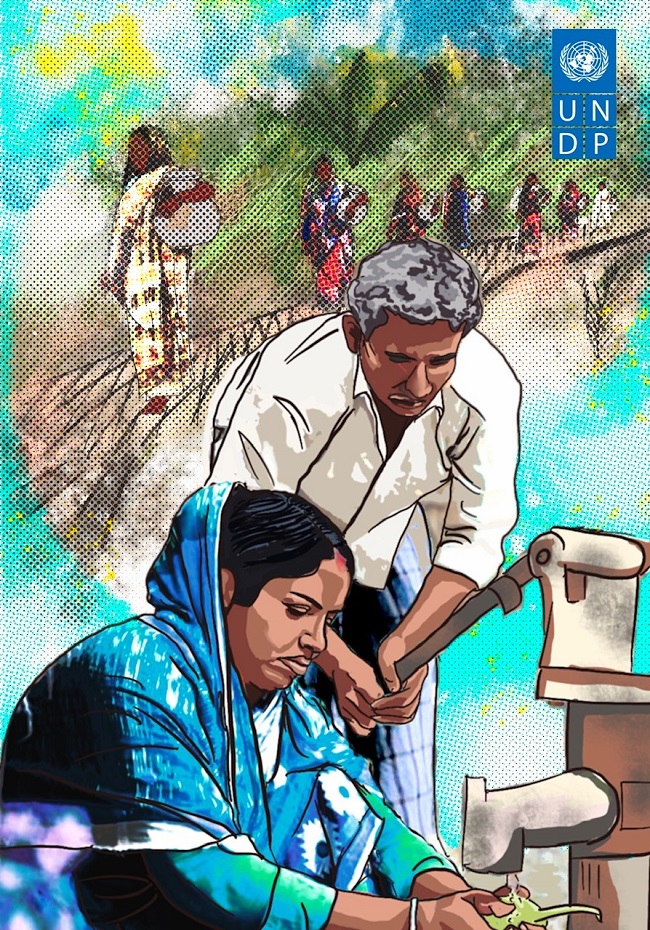Closing the gender gap to build forward better
August 3, 2022

This is the case in Khulna, in Amerpur village, and all the load falls on the shoulders of the women. Hence they have no free time until a small practice changed the lives of women in Amerpur.
Drinkable, usable water is very rare in cyclone-affected areas. One has to walk long distances to reach just a little bit of potted water. Otherwise borrow the water from neighbours, as if it’s a cup of sugar or rice. This is the case in Khulna, in Amerpur village, and all the load falls on the shoulders of the women. Hence they have no free time until a small practice changed the lives of women in Amerpur.
Now the perspective is changing from village to village.
Taposhi’s house is in Amerpur. Her husband is a day labourer. No matter how hard it got, Taposhi would walk miles with her son on her lap to get water. Aside from that, she also has to help her husband with work. the tube well that is in the house is not workable, it showed black spots.
Due to climate change, the salt level in the soil increased. The soil is infertile and the water is too saline. Since getting married, Taposhi has been repeating this routine for the last decade or more.
In 2021 February, a survey showed that women were responsible for collecting water in 74% of these coastal families. Keeping this survey in mind, UNDP started a different kind of livelihood initiative named “Gender-responsive Coastal Adaptation” funded by the Ministry of Women and Children Affairs (MoWCA) and the Green Climate Fund (GCF). At this point, the program tried to align women’s unpaid labour with men’s efforts.
The purpose of this program was to inspire compassion and helpfulness in the community. Especially, women in the coastal areas have to do additional work due to climate- change. Under the project, one family is selected from each ward and the staff of the project’s subsidiary organizations facilitate the practice of transferring women’s work to men. And training is given to inculcate the importance of male assistance in women’s work. Everyone in the family including their children joins the program.
Taposhi and her husband had also joined this training program. During the COVID period, the visit also discussed about following the COVID-19 health rules and awareness of COVID.
After 6 months a discussion on sharing unpaid domestic work was held in 5 Upazilas to see what changes in the community resulted from this training and social mobilisation program. Women report that men in the family are taking an active role in collecting water more than ever before. Among them, now more people are showing more interest in extending a helping hand for other household chores.
Within 6 months of starting the program, Taposhi has also transformed. When Taposhi is busy with cooking or other domestic chores, her husband now offers to do other work like making the bed etc. He said the partners were now helping the women side-by-side by collecting food and water.
Taposhi said, “Husbands are now helping their wives side-by-side their own duties, helping them with difficult tasks like collecting drinkable water.”
Those who have been under this program are finding their perspectives changing.
Taposhi’s husband Romakanto Mondol said, “we’ve never really taken the opportunity to appreciate how much our wives have to do and that we men also have a role in domestic chores. Now it’s not just me— almost everyone in the village partakes in helping collect drinkable water!”

 Locations
Locations

